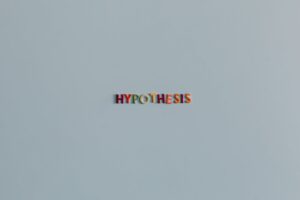If you want to express a hypothesis (I wish / if only / what if/ in case / suppose (that) in French, what you need is a conditional or if clause. French is no different from English in this matter and consists of similar grammar rules. However, grammar tenses can make a difference so stay tuned to learn how French express hypotheses.
What is a hypothesis?
Si clauses, also known as conditionals or conditional sentences, are “if constructions” that express a condition to be met in order for a certain result to occur. The names of conditionals are sometimes misleading because not all of them contain a verb in conditional. It’s because the names do not refer to that verb mood, but to the fact that each conditional sentence includes a condition, something that determines the result.
Understanding comes with context, so let’s take a look at the following example. In the following sentence, there’s an obvious condition that determines another action.
Only in the case person comes, she will make a telephone call.
Si tu viens, téléphone-moi.
If you come, call me.
This type of conditional sentence is called a possible condition. But, there are also impossible and probable conditions, which are expressed with past tenses.
Finally, there are three types of conditional sentences, depending on whether the condition is likely, unlikely, or impossible to happen. A specific combination of verb tenses and moods for each type allows you to distinguish and model each one of the conditional sentences.
“If” in French
If in French is “si”. Si elision happens in case “if” is followed by “il(s)” so it becomes “s’il(s)”.
However, if “si” is followed by any other vowel, mute h, even “elle”, it remains unchanged.
Je ne sais pas s’il achetera le pain demain.
I don’t know if he will buy bread tomorrow.
but
Je ne sais pas si elle achetera le pain demain.
I don’t know if she will buy bread tomorrow.
If clauses – Structure in French
The French constructions of these hypothetical statements follow very strict tense rules (the same as the English ones).
As we mentioned, three conditional options are available, a possible condition, a hypothetical condition, and an impossible condition. They are all linked to a specific tense. The possible condition happens in the present, hypothetical condition uses imperfect, and impossible conditions use the plusquemparfect. Each sentence structure is actually a combination of two tenses and it must be learned by heart.
The best way to learn the combinations is to memorize one example for each conditional structure.
I – Conditional – Possible Condition
Action will occur in the present or the future provided another occurs.
Si + present indicative, verb in present, future or imperative
Si tu viens, téléphone-moi.
If you come, call me.
II – Conditional – Hypothetical condition in the past
The hypothesis is located in the present or the future, while the action envisaged has little chance of being carried out.
Si + imperfect, present conditional verb
Si j’allais à Londre, j’irais chaque soir voir un spectacle.
If I went to London, I would go to see a show every night.
III – Conditional – Unreal past condition
The hypothesis is located in the past and the action envisaged has not been carried out.
Si+ plus-que-parfait, verbe au conditionnel passé
S’il m’avait téléphoné, je lui aurais expliqué la situation.
If he had called me, I would have explained the situation to him.
Conjuctions instead of si
À condition que+ subjonctif (general value).
Je te prêterai l’argent à condition que tu me le rendes la semaine prochaine.
Pourvu que + subjonctif (necessary condition).
Tu pourras voyager pourvu que les bus ne fasse pas de grève.
Pour peu que + subjonctif (minimum requirement).
Elle rougit pour peu qu’on lui fassent un compliment.
À supposer que/ En attendant que + subjonctif (Hypothesis chosen by the speaker).
À supposer qu’elle ne vienne pas, nous partirons le soir.
Au cas où + conditionnel (Hypothesis that does not depend on the speaker).
Nous resterons à l’hôtel au cas où il neigait.
If you learn French this summer, you’ll be cool.
The ultimate truth! Whoever speaks French gets the reputation of being an interesting person. Mastering French conditional sentences allows you to talk about conditions or obstacles on your way to getting the desired outcome. The fact French conditional sentences are so similar to English “if clauses” makes it easy to get started.
